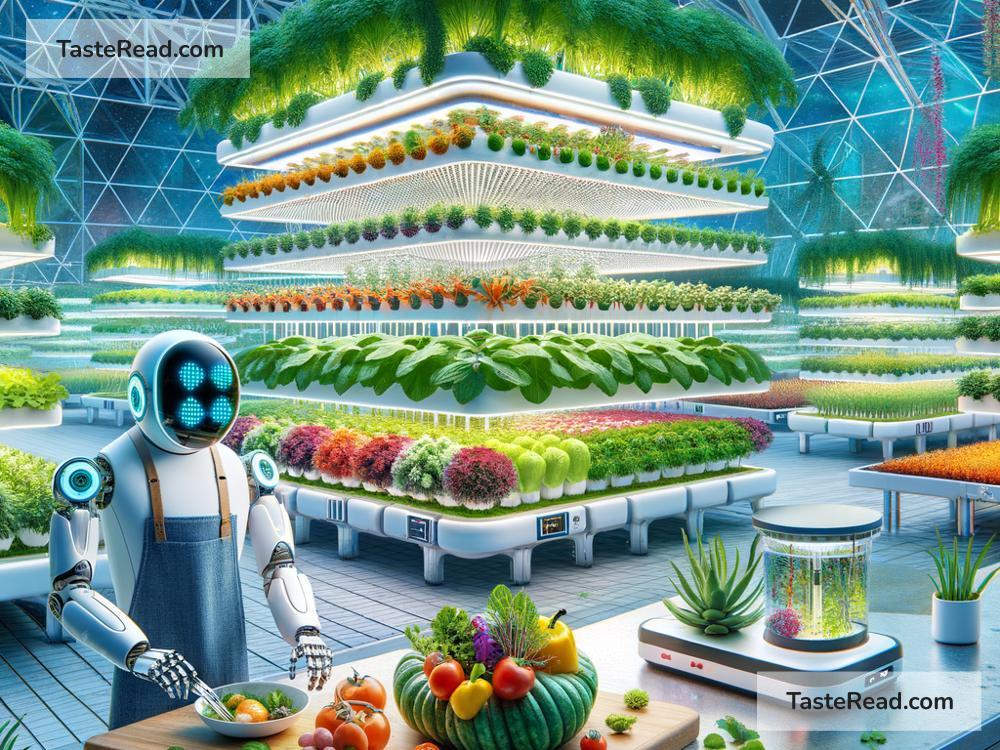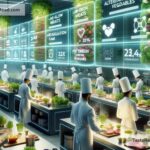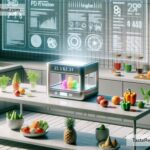The Future of Food: Building Holistic and Sustainable Systems
Food is something we all depend on. It gives us energy, nourishes our bodies, and connects us to nature and each other. But today, the way we grow, produce, and consume food faces big challenges. Climate change, population growth, and shrinking farmland are putting pressure on the global food system. At the same time, more people are realizing how important it is to make food production healthier, fairer, and better for the planet. This brings us to the idea of “holistic systemic food systems.” While it sounds complex, it simply means looking at food as part of a connected, balanced network that considers people, the environment, and economies equally.
Let’s explore what the future of food might look like and how holistic systems can create a healthier world for everyone.
What’s Wrong with the Current Food System?
The modern food system is designed to meet the needs of billions of people. But over the years, it’s become focused on efficiency and profit rather than sustainability and fairness. Farms often use chemicals to produce food faster, but this harms soil health, pollutes water, and decreases biodiversity. Big food industries prioritize cheap, mass production instead of nutritious or locally-sourced foods, leading to health problems like obesity and diabetes. On the other hand, many farmers, especially in poorer regions, struggle to make a living from their work.
Additionally, enormous quantities of food are wasted—about one-third of all food produced globally ends up being thrown away while millions of people go hungry. Climate change is making things worse, bringing unpredictable weather, droughts, and floods that make farming more difficult.
Clearly, the way we grow and consume food needs some big changes. This is where holistic thinking comes in.
What Does “Holistic” Mean?
Holistic means treating the whole system as one interconnected unit instead of focusing on individual parts in isolation. A holistic food system looks at every stage—farming, transportation, markets, waste, and consumer habits—as connected. It also considers the impact on the environment, health, communities, and economies. In other words, it doesn’t just focus on producing more food but looks at how food can improve lives, protect the planet, and support future generations.
Key Ideas for the Future of Food
To make food systems truly sustainable and efficient, we need to rethink the way they work from start to finish. Here are some key ideas that could shape the future of food:
1. Regenerative Agriculture
Regenerative agriculture goes beyond sustainable farming—it actually improves the land instead of just maintaining it. Techniques such as crop rotation, cover crops, and reducing chemical use help rebuild soil health, increase biodiversity, and absorb carbon dioxide, which fights climate change. Regenerative farms also tend to produce healthier food and use water more efficiently, making them a smart solution for a growing population.
2. Localized Food Systems
Currently, a lot of food is shipped across the world before it reaches our plates. This creates a big carbon footprint and disconnects people from local farmers. The future of food could emphasize localized systems, where communities grow, trade, and eat food that comes from nearby. This reduces transportation costs, strengthens local economies, and reconnects people to the source of their food.
3. Food Tech and Innovation
Technology is playing a big role in transforming food. Lab-grown meat, vertical farming, and AI-driven precision agriculture are just a few examples. Lab-grown meat offers a way to produce protein without harming animals or using excessive resources. Vertical farms grow crops indoors using stacked layers, saving space and reducing water usage. Smart technology like drones and AI ensures farmers can care for their crops with maximum efficiency.
4. Reducing Food Waste
Every piece of wasted food represents wasted water, energy, and money. Future food systems will need to include better ways to prevent waste, such as improved storage and transportation, smarter packaging, or turning waste into new products like animal feed or compost. Consumers can also help by buying only what they need and eating leftovers creatively.
5. Inclusive and Fair Systems
A truly holistic food system makes sure everyone is included—farmers, small businesses, and disadvantaged communities. Policies that support small-scale farmers, pay fair wages, and ensure affordable healthy food for all are a key part of the future. In addition, educating people about food systems can encourage better food choices and empower communities to grow their own food.
Food as Medicine for the Planet and People
Future food systems will also focus on the idea that food is medicine—not just for humans but for the planet itself. Healthier diets that include more plants and less processed food can reduce the burden of diseases and improve well-being. Meanwhile, farming methods that heal the soil and reduce emissions can protect ecosystems and slow down climate change. In this way, food can act as a powerful tool to heal the world.
What Can We Do Now?
Change begins with each of us. Even small actions can make a difference. Supporting local farmers, eating more plants, reducing food waste, and learning about sustainable practices are steps everyone can take today. Governments, businesses, and scientists also play key roles in driving larger systemic changes, but individuals are a crucial part of the movement.
Conclusion
The future of food is about more than growing enough to feed a growing population—it’s about creating systems that nurture people, communities, and the environment. A holistic approach ensures that every step in the food journey, from farm to table, contributes to the well-being of the planet and its people. With innovative farming, smart technology, and mindful consumption, we can shape a food system that is healthy, fair, and sustainable for generations to come. Let’s work together to build this future, one meal at a time.


